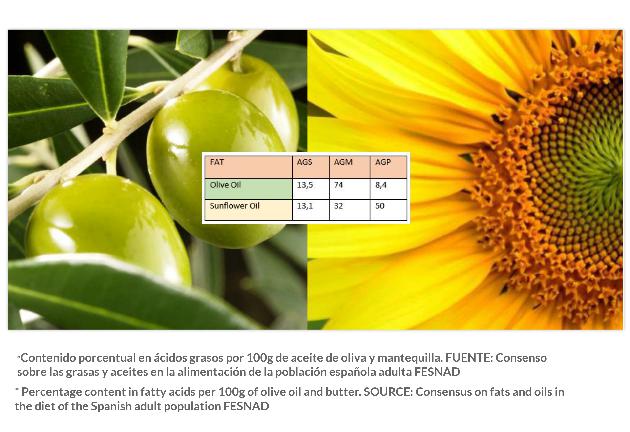Olive Or Sunflower Oil For Cooking?
In our previous post, we compared Extra Virgin Olive Oil (EVOO) with the butter, and we could see that the lipid profile of the Extra Virgin Olive Oil is the best option for our health. In this article we will continue analyzing the properties and utilities of different fats. This time will be olive oil VS. sunflower oil, especially at the time of cooking. Did you know that when you are frying or cooking at a high temperature (close to 180ºC), the molecular structures of the fats and oils you use will change? The process is called oxidation: they react with oxygen in the air to form toxic compounds such as lipid aldehydes and peroxides. Observing the nutritional comparison of the olive oil and the sunflower, we see the same amount of saturated fatty acids (SFA), ‘the bad ones’. But there is a noticeable difference: olive oil contains more monounsaturated fatty acids (AGM) and more polyunsaturated sunflower (AGP). Olive oil· AGS: 13,5· AGM: 74· AGP: 8,4 Sunflower oil· AGS: 13,1· AGM: 32· AGP: 50 This difference in the composition of the fatty acids gives olive oil more stability when it is heated and more resistence in the oxidation process. As a conclusion of various scientific investigations, we can affirm that olive oil maintains nutritional quality and resist heat better than sunflower oil when heated, thus producing healthier foods that generate lower levels of lipid aldehydes and peroxides.
Olive Or Sunflower Oil For Cooking? Read More »

